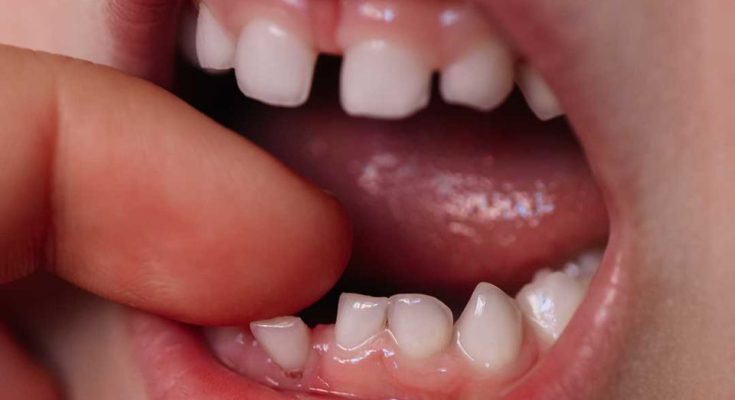The idea of saving your child’s baby teeth might seem strange or unnecessary, but what if those little teeth could one day help save a life? While keeping baby teeth is often viewed as sentimental, new science reveals that these teeth hold incredible potential. This article explores why holding onto your child’s baby teeth could be one of the most important choices you make as a parent.
Historical Importance of Keeping Baby Teeth
The custom of saving a child’s baby teeth has roots in many cultures worldwide. Historically, people kept baby teeth as symbols of good luck or cherished memories from childhood. Some cultures even believed they held magical properties. While the sentimental value remains, modern science has unveiled that these tiny teeth also hold significant medical possibilities.
What Are Stem Cells?
Stem cells are remarkable cells with the unique ability to develop into different cell types in the body. They play essential roles in growth, healing, and tissue repair. There are two primary types: embryonic stem cells and adult stem cells. Baby teeth contain a rich source of adult stem cells called mesenchymal stem cells (MSCs), which can differentiate into various cell types, including bone, cartilage, and fat.
Medical Uses for Baby Teeth
Recent advancements in medical research have highlighted the health potential within stem cells from baby teeth. These cells are being studied for their ability to regenerate tissues, treat autoimmune diseases, and even repair damaged organs. The dental pulp within baby teeth provides a valuable source of these powerful cells, presenting exciting opportunities in regenerative medicine and personalized treatment.
Stem Cell Banking: A Safe Method
Stem cell banking involves collecting, processing, and freezing stem cells for future use safely. The process is non-invasive and safe! When your child’s tooth becomes loose, it can be collected and sent to a specialized facility, where they extract the dental pulp, harvest, and store the stem cells under optimal conditions. These facilities follow strict protocols to ensure safety and viability.
Treatable Conditions with Stem Cells from Baby Teeth
Stem cells harvested from baby teeth are being explored in experimental treatments for various conditions, including Type 1 diabetes, heart disease, and neurodegenerative disorders like Alzheimer’s and Parkinson’s. They also show promise in treating spinal cord injuries, bone defects, and certain cancers. Ongoing research continues to expand this list!
Ethical Issues and Debates
Although using stem cells from baby teeth is less controversial than embryonic stem cells, it still raises ethical questions. Topics like the commercialization of biological materials, consent, and equitable access to treatments remain under discussion among medical experts. However, most agree that using stem cells from baby teeth is ethically sound since they are collected without harm.
Tips on Storing Baby Teeth
If you’re considering saving your child’s baby teeth, timing and handling are essential! Once a tooth falls out, keep it moist by placing it in a special solution or milk to help preserve its pulp. Quickly sending it to a certified banking service can ensure successful harvesting and storage. Many companies provide clear instructions so parents know exactly what to do.
Success Stories from Parents
Many parents who decided to save their child’s baby teeth have shared remarkable experiences! One parent noted how this choice provided a potentially life-saving option for their child facing a serious illness. These stories demonstrate the peace of mind and proactive health security that comes from preserving those little teeth.
Expert Views and Re
The idea of saving your child’s baby teeth might seem strange or unnecessary, but what if those little teeth could one day help save a life? While keeping baby teeth is often viewed as sentimental, new science reveals that these teeth hold incredible potential. This article explores why holding onto your child’s baby teeth could be one of the most important choices you make as a parent.
Historical Importance of Keeping Baby Teeth
The custom of saving a child’s baby teeth has roots in many cultures worldwide. Historically, people kept baby teeth as symbols of good luck or cherished memories from childhood. Some cultures even believed they held magical properties. While the sentimental value remains, modern science has unveiled that these tiny teeth also hold significant medical possibilities.
What Are Stem Cells?
Stem cells are remarkable cells with the unique ability to develop into different cell types in the body. They play essential roles in growth, healing, and tissue repair. There are two primary types: embryonic stem cells and adult stem cells. Baby teeth contain a rich source of adult stem cells called mesenchymal stem cells (MSCs), which can differentiate into various cell types, including bone, cartilage, and fat.
Medical Uses for Baby Teeth
Recent advancements in medical research have highlighted the health potential within stem cells from baby teeth. These cells are being studied for their ability to regenerate tissues, treat autoimmune diseases, and even repair damaged organs. The dental pulp within baby teeth provides a valuable source of these powerful cells, presenting exciting opportunities in regenerative medicine and personalized treatment.
Stem Cell Banking: A Safe Method
Stem cell banking involves collecting, processing, and freezing stem cells for future use safely. The process is non-invasive and safe! When your child’s tooth becomes loose, it can be collected and sent to a specialized facility, where they extract the dental pulp, harvest, and store the stem cells under optimal conditions. These facilities follow strict protocols to ensure safety and viability.
Treatable Conditions with Stem Cells from Baby Teeth
Stem cells harvested from baby teeth are being explored in experimental treatments for various conditions, including Type 1 diabetes, heart disease, and neurodegenerative disorders like Alzheimer’s and Parkinson’s. They also show promise in treating spinal cord injuries, bone defects, and certain cancers. Ongoing research continues to expand this list!
Ethical Issues and Debates
Although using stem cells from baby teeth is less controversial than embryonic stem cells, it still raises ethical questions. Topics like the commercialization of biological materials, consent, and equitable access to treatments remain under discussion among medical experts. However, most agree that using stem cells from baby teeth is ethically sound since they are collected without harm.
Tips on Storing Baby Teeth
If you’re considering saving your child’s baby teeth, timing and handling are essential! Once a tooth falls out, keep it moist by placing it in a special solution or milk to help preserve its pulp. Quickly sending it to a certified banking service can ensure successful harvesting and storage. Many companies provide clear instructions so parents know exactly what to do.
Success Stories from Parents
Many parents who decided to save their child’s baby teeth have shared remarkable experiences! One parent noted how this choice provided a potentially life-saving option for their child facing a serious illness. These stories demonstrate the peace of mind and proactive health security that comes from preserving those little teeth.
Expert Views and Research Insights
Experts in pediatric medicine and stem cell research support the benefits of storing baby teeth. Studies continue to show the viability and versatility of stem cells derived from dental pulp. Researchers are constantly exploring new uses, finding evidence that supports the utility of these cells in innovative treatments.
Conclusion
Saving your child’s baby teeth may hold cultural significance, but modern science offers even more compelling reasons to make it a thoughtful decision. The opportunity to harness life-saving potential from these stems makes this practice a forward-thinking health choice. Preserving those little teeth could pave the way for remarkable medical benefits, serving as a crucial factor in future well-being!
search Insights
Experts in pediatric medicine and stem cell research support the benefits of storing baby teeth. Studies continue to show the viability and versatility of stem cells derived from dental pulp. Researchers are constantly exploring new uses, finding evidence that supports the utility of these cells in innovative treatments.
Conclusion
Saving your child’s baby teeth may hold cultural significance, but modern science offers even more compelling reasons to make it a thoughtful decision. The opportunity to harness life-saving potential from these stems makes this practice a forward-thinking health choice. Preserving those little teeth could pave the way for remarkable medical benefits, serving as a crucial factor in future well-being!



